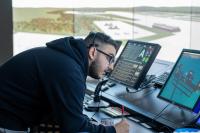
Ready to train as a professional pilot with a program built on precision and performance? The Professional Pilot program combines FAA-approved coursework with advanced flight training in Kent State’s university-owned fleet and integrated simulators, preparing students for careers in commercial, corporate, military and specialized aviation operations.















